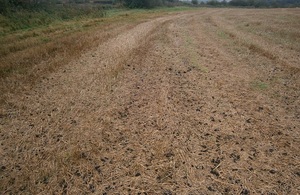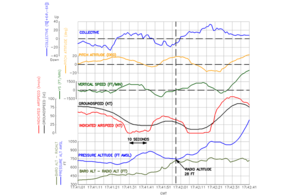- Almost 109,000 volunteers tested in England between 20 May and 7 June 2021 as part of one of the most significant coronavirus (COVID-19) studies in the world
- Despite the success of the vaccination rollout, report shows the prevalence of COVID-19 infections was rising rapidly during late May and early June, coinciding with Delta becoming the dominant variant
Findings from the 12th report of REACT-1, one of the country’s largest studies into COVID-19 infections in England, have been published today (Thursday 17 June) by Imperial College London and Ipsos MORI.
Almost 109,000 volunteers were tested with PCR tests in England between 20 May and 7 June to examine the levels of COVID-19 in the general population. The latest data shows infections in England have increased by 50% since the last REACT-1 report period, between 15 April and 3 May.
The main findings from the 12th round of the REACT study show:
- between rounds 11 (15 April to 3 May) and 12 (20 May to 7 June), national prevalence has increased from 0.10% to 0.15%
- exponential growth with a doubling time of 11 days and an R number of 1.44 in England during round 12
- the highest prevalence was found in the North West at 0.26%, up from 0.11% in round 11; and lowest prevalence in round 12 was in the South West at 0.05%
- prevalence is highest in 5 to 12 and 18 to 24 year olds, rising from 0.16% to 0.35% and from 0.10% to 0.36% respectively
- prevalence in those aged 5 to 49 was 2.5 times higher at 0.20% compared with those aged 50 and above at 0.08%
- at the beginning of February, the link between infection rates and deaths started to weaken. In late April, infection rates and hospital admissions started to reconverge, however, when split by age, the weakened link between infection rates and hospitalisations for ages 65 and over was maintained. The trends converged for the younger age group who are less likely to be fully vaccinated.
This latest REACT-1 report also details which variants were detected in swab-positive test samples. Data suggest most COVID-19 infections are now the Delta (B.1.617.2) variant. Public Health England’s (PHE) latest weekly data also shows cases of Delta now account for 90% of UK cases.
Health and Social Care Secretary Matt Hancock said:
These findings highlight the stark context in which we took the difficult decision to delay step 4 of the roadmap out of lockdown.
Cases are now rising, but thanks to our incredible vaccination programme and enhanced response package including surge testing, we have the tools to curb the spread of this virus.
We all must hold our nerve that little bit longer as our vaccine rollout continues and I urge everyone to keep observing hands, face, space and fresh air, and make sure you receive both doses of the vaccine for the best possible protection.
New data published this week by PHE shows the AstraZeneca vaccine is 92% effective against hospitalisation from the Delta variant after 2 doses, and the Pfizer vaccine is 96% effective against hospitalisation after 2 doses.
On Monday, the government confirmed a delay to unlocking step 4 of the roadmap which means all current legal limits on social interactions and restrictions on large events, performances and life events (with the exception of weddings) will stay in place until 19 July, although if the data rapidly improves this could be brought forward to 5 July, giving the population more time to be protected from COVID-19 through vaccination.
Professor Paul Elliott, director of the REACT programme from Imperial’s School of Public Health, said:
We found strong evidence for exponential growth in infection from late May to early June in the REACT-1 study, with a doubling time of 11 days on average for England. These data coincide with the Delta variant becoming dominant and show the importance of continuing to monitor infection rates and variants of concern in the community.
Kelly Beaver, Managing Director, Public Affairs at Ipsos MORI, said:
The rise in cases picked up by the REACT-1 study is concerning and is being fed into government decision making in real time. While the rise is small, the increase of the R number to over one highlights that number’s potential to increase rapidly, an important reminder to get vaccinated when you can. I’d like to thank the almost 2 million members of the public who’ve taken part in the REACT-1 study since it began a year ago for helping provide this crucial piece of evidence to government.
This report is the latest from the REACT-1 study which was commissioned by the Department of Health and Social Care and carried out by a world-class team of scientists, clinicians and researchers at Imperial College London, Imperial College Healthcare NHS Trust and Ipsos MORI.
Robust population surveillance studies like this are essential to understanding the rate of COVID-19 infection, how the virus is spreading across the country and the impact of measures taken to contain the virus in order to inform current and future actions.
See more information on the Real-time Assessment of Community Transmission (REACT) programme of work.
This study falls under pillar 4 of the COVID-19 National Testing Programme, which focuses on mass surveillance in the general population.
Find more detail on enhanced support in some areas.


